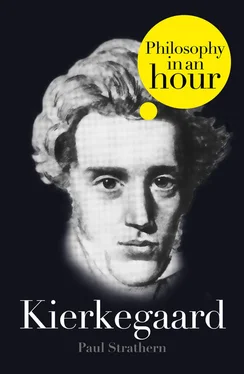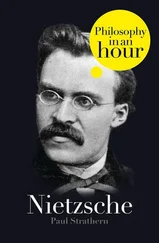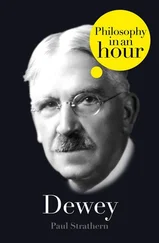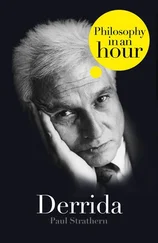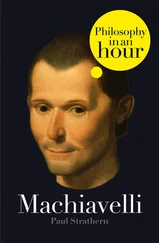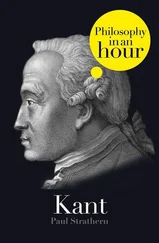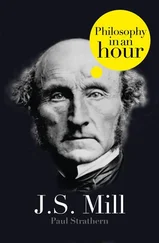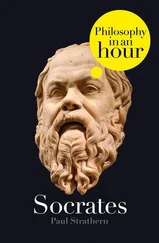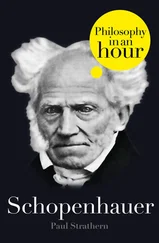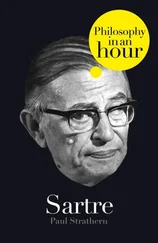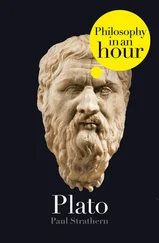Kierkegaard
PHILOSOPHY IN AN HOUR
Paul Strathern
Cover
Title Page Kierkegaard PHILOSOPHY IN AN HOUR Paul Strathern
Introduction
Kierkegaard’s Life and Works
Afterword
Further Information
From Kierkegaard’s Writings
Chronology of Significant Philosophical Dates
Chronology of Kierkegaard’s Life
Chronology of Kierkegaard’s Era
Recommended Reading
About the Author
Copyright
About the Publisher
Kierkegaard wasn’t really a philosopher at all. At least not in the academic sense. Yet he produced what many people expect of philosophy. He didn’t write about the world, he wrote about life – how we live, and how we choose to live.
Kierkegaard philosophised about what it means to be alive. His subject was the individual and his or her existence: the ‘existing being’. In Kierkegaard’s view, this purely subjective entity lay beyond the reach of reason, logic, philosophical systems, theology, or even ‘the pretences of psychology’. Nonetheless it was the source of all these subjects. As a result of such thinking, philosophers, theologians, and psychologists have all at some time disowned Kierkegaard. The branch of philosophy – or nonphilosophy, for many purists – to which Kierkegaard gave birth has come to be known as existentialism.
It took some time for existentialism to catch on. Some philosophers – such as Nietzsche, Husserl, and Heidegger – were existentialists without realising it (according to the existentialists). Heidegger vehemently denied this, and Nietzsche died before anyone could tell him. Indeed, it wasn’t until almost a century after Kierkegaard’s death that existentialism came into its own, with the emergence of the French philosopher Jean-Paul Sartre in Paris after World War II.
The intellectuals of postwar Paris were in despair: there was nothing for them to believe in anymore. Surrealism, which had gained intellectual credence by describing itself as absurd, had now been recognised as ridiculous. And with the rise of Stalin, French intellectuals even found it difficult to believe in communism (though they certainly tried). Then along came existentialism, which didn’t require one to believe in anything at all. Indeed, it even emphasised that despair was part of the human condition.
Existentialism soon became the rage and spread beyond the cafés of the Left Bank, as far afield as the cafés of Greenwich Village, the coffee bars of London, and the beatnik haunts of San Francisco. It also attracted attention in universities on both sides of the Atlantic. Existentialism was both a café and a university philosophy – an unusual blend of the spurious and the deeply insightful. This proved equally attractive to artists, writers, philosophers, and charlatans, all of whom made their contribution to its growth. In this way, existentialism proved a suitable forerunner to behaviourism, structuralism, poststructuralism, and the like, which were to become the rage in the following decades.
Existentialism’s core philosophy – ‘the problem of existence’ – was considered very much a product of the twentieth century, with its characteristic alienation, angst, absurdity, and preoccupation with similar buzzwords. But all this derives directly from Kierkegaard, who was born almost a century before Sartre.
Kierkegaard was certainly ahead of his time. Yet he also brought about a long-overdue reexamination of one of the first philosophical questions ever to be asked: ‘What is existence?’ This question had of course continued to be asked ever since, by almost everyone except philosophers. To them the question was either laughable, invalid, or answered so completely by their own philosophy that there was no need whatsoever to go on asking it. Kierkegaard, on the other hand, insisted that every individual should not only ask this question but should make his very life his own subjective answer to it. This stress on subjectivity is Kierkegaard’s main contribution.
The problem of existence – or ‘being’ – was central to the thinking of many of the earliest philosophers. Before Socrates and Plato introduced an element of reason into philosophy (thus making it academically respectable), philosophers had been much concerned with the question of being. What did it mean to be alive? What was the meaning of existence? they wondered. Such naive questions are nowadays laughed out of court by serious philosophers. Asking these questions is simply meaningless, we are told. Yet we mere mortals stubbornly continue to ask them. In our artless fashion, some of us even expect philosophy to provide an answer. Several pre-Socratic philosophers, blithely unaware of the sophistication of philosophers to come, even insisted upon taking such questions seriously.
Parmenides, who lived in the Greek colony of Elea in southern Italy in the fifth century B.C., taught that being was the one single unchanging element of all existence. ‘All is one’. Such things as multiplicity, change, and motion were mere appearance. Other pre-Socratic philosophers began to question the difference between the existence of ‘real’ things as compared with abstract notions and imagined things. What quality differentiated my existence from that of mathematics or dreams? What did it mean ‘to exist’?
Then came Socrates and Plato. ‘Know thyself’ – rather than ‘Know what it means to be yourself’ – became the order of the day. The problem of being faded from philosophy. This fundamental notion (perhaps the most fundamental of all) was simply ignored. As far as Plato was concerned, existence was simply accepted as given, rather than its nature questioned.
Now, it is arguable that Plato was the most comprehensive and profound philosophical mind of all time; still, he was capable of overlooking what many consider to be the most important philosophical question of all. (Newton may have been the most comprehensive and profound scientific mind of all time, but that didn’t stop Einstein from showing how his universe rested on a false assumption.) Despite contemporary opinions to the contrary, there is such a thing as fundamental progress. We know more and more about the world, in almost every field (except perhaps philosophy). But on the level of individual existence – in the way Kierkegaard spoke of it – we remain the same. Where subjective being is concerned, there appears to be no such thing as progress. We all suffer (or enjoy) the same situation: the human condition. And have done so since time immemorial.
Taking their cue from Plato, ensuing philosophers continued to ignore the human condition. Subjective existence – possibly the one thing we all indisputably have in common – was left to the musings of philosophical simpletons. For almost two millennia the philosophy of Plato and his pupil Aristotle reigned supreme.
Not until the seventeenth century did philosophy return to base: that fundamental ground from which it had originally grown. Who am I, and what do I mean when I say ‘I exist’? The French philosopher René Descartes declared: ‘ Cogito ergo sum ’ (I think therefore I am). Everything in the mind and the world could be doubted, everything could be an illusion or a deceptive fantasy of some kind except the fact that I am thinking it. The fundamental notion, the absolute unquestionable rock upon which all philosophy could be based was once again seen to be the subjective self. But this was very much the self of a French intellectual. It existed only when it was thinking . Feelings, perceptions, and so forth – all these were liable to deception. The subjective ‘I’ could know that it existed, but it could know nothing else for certain. It was left naked and defenseless, exposed to the deceptive elements: ‘unaccommodated man’, wrote Shakespeare, ‘is no more but such a poor, bare, forked animal.’
Читать дальше
